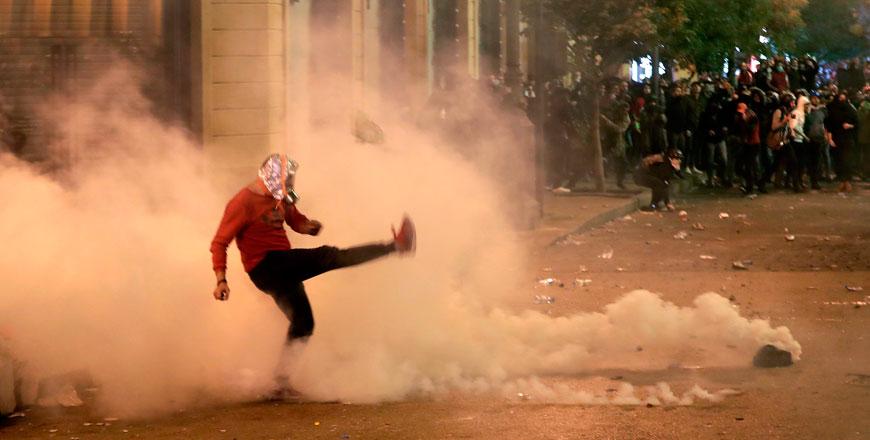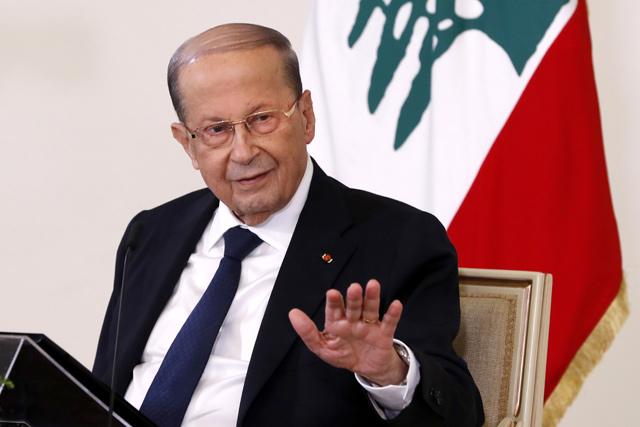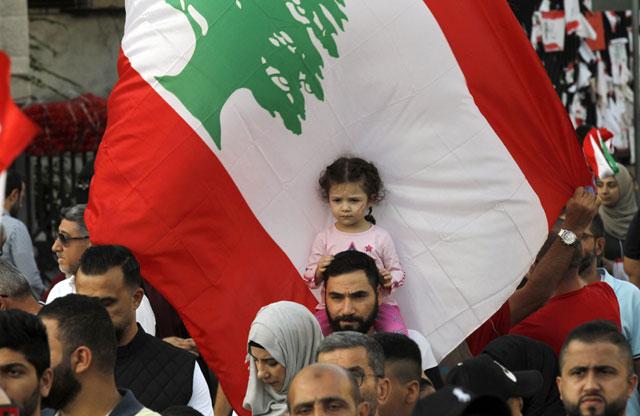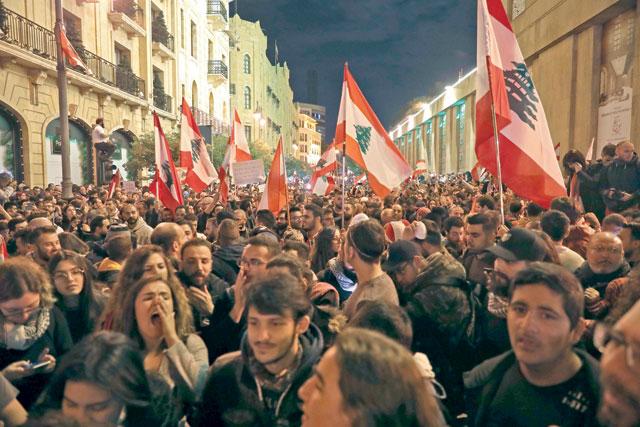You are here
Lebanon: Two months of protest
By AFP - Dec 16,2019 - Last updated at Dec 16,2019

A Lebanese demonstrator kicks back a tear-gas canister during clashes with riot police in the capital Beirut on Sunday (AFP photo)
BEIRUT — Lebanon has been paralysed by two months of protests demanding an overhaul of the entire political system.
Here is a recap:‘WhatsApp tax’ anger
On October 17, the government announces a tax on messaging apps such as WhatsApp. Coming amid a looming economic crisis, the announcement is seen by many as a step too far.
Thousands take to the streets in Beirut and other cities, some chanting “the people demand the fall of the regime”.
The government scraps the messaging app tax the same day, but the protests continue.
Demos grow
On October 18, thousands of demonstrators from across sects and political affiliations bring the capital to a standstill.
They demand an overhaul of the entire political system, citing grievances from austerity measures and state corruption to poor infrastructure and rampant electricity cuts.
The army reopens some highways blocked by protesters and disperses a huge crowd in Beirut with water cannon and tear gas. Dozens are arrested.
The demonstrations swell over the following days, with major gatherings also in second city Tripoli and other centres.
Reforms announced
On October 21, Prime Minister Saad Hariri announces his government has approved a raft of economic reforms, including halving lawmakers’ and ministers’ salaries.
But demonstrators dismiss the new measures as insufficient.
On October 25, the powerful Shiite movement Hizbollah — which with its allies holds a majority in parliament — tells supporters not to take part in the protests.
The next day, it mobilises counterrallies, sparking scuffles with anti-government demonstrators.
Government resigns
On the evening of October 29, Hariri submits his resignation and that of his government, prompting cheers and dancing in the streets.
President Michel Aoun asks the government to stay on until a new Cabinet is formed.
Protesters regroup over the next days, demanding a government of technocrats, independent of traditional political parties divided along sectarian lines.
In a television address on November 3, Aoun announces plans to tackle corruption, reform the economy and form a civil government.
But thousands of protesters stream back into Beirut’s Martyrs’ Square, chanting “Revolution!”
Counterattacks
On November 24, supporters of Hizbollah and its Amal allies attack anti-government protesters in Beirut in their most serious assault on protesters so far.
Army reinforcements intervene. At least 10 people are injured.
It prompts the UN Security Council to call for “intensive national dialogue”.
Over three consecutive nights of violence, 16 people are detained and 51 troops are wounded, the army says on November 27.
Violence intensifies
Parliamentary consultations to nominate a new prime minister due for December 9 are postponed just hours after Sunni Muslim leaders back Hariri.
On December 12 Hariri appeals for international funding for an emergency rescue package to resolve the crisis.
Clashes that erupt late December 14 are most violent since the protests began. Security forces use tear gas and rubber bullets to disperse demonstrators, who demand an independent technocrat government and that Hariri is not returned to his post.
Hizbollah and Amal supporters also clash with riot police who fire tear gas to prevent them from breaching barricades near parliament. Dozens are hurt.
The violence continues on December 15, thousands flooding central Beirut on the eve of planned consultations to select a new prime minister.
Shortly before the talks are due to start, the presidency announces Aoun has postponed them until December 19 at Hariri’s request.
Related Articles
BEIRUT — Crisis-hit Lebanon's next prime minister, the third in a year, will have to spearhead reforms and battle corruption, President Mich
BAABDA, Lebanon — Lebanon's president Sunday called on citizens to unite behind reforms, after more than two weeks of nationwide anti-graft
BEIRUT — Lebanon's president on Monday postponed consultations to select a new prime minister after weeks of largely peaceful street protest


















